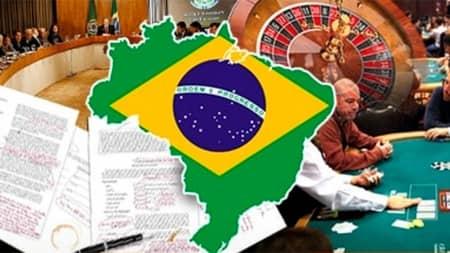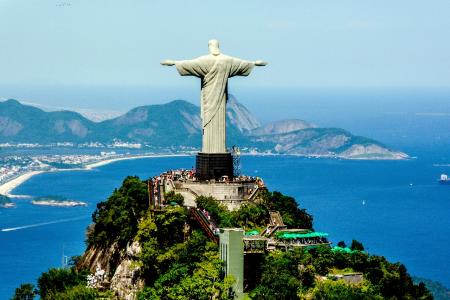Brazil: Soon legal casinos?

In Brazil as in Japan, the status of games of chance and money is still subject to controversy. Despite relative flexibility on poker in Brazil and an irresistible attraction for Pachinkos in Japan, the authorization to open land casinos has not yet been officially pronounced on both sides. At the dawn of 2024, it could be that it becomes “a promised thing, due” if the President of the Brazilian Republic Jair Bolsonaro admits that this creation of places dedicated to the Games is crucial in these times of crisis for the economy national. Let’s see what arguments could have it changed in favor of gambling.
Very popular games of chance and money in Brazil?
Among the casino games, poker occupies a special place in the land of the sun and the Blue Aras. Strictly speaking, it is not considered a pure game of chance. It is certainly played with cards but it uses more than 95% technique … and strategy! A good poker player can only congratulate himself from his victory unlike the bingo and the lotteries. This is why in Brazil, it benefits from a special tolerance (halfway between authorization and ban) that Japan does not have. Texas Hold’em would even have its confederation sometimes organizing poker tournaments Throughout South America!
All over the world, poker is about to become the most popular table game thanks to the containment of 2020. Without counting the biggest online poker tournament never organized which allowed a Brazilian amateur to win 1,192,802.46 dollars, that is to say more than 1 million euros, in the midst of a health crisis!
Best Casinos – September 2024
Casinos by the sea to protect the local population?
As we know, tourists love Brazilian beaches like Copacabana or Ipanema in Rio de Janeiro. And allowing them to play freely in an area circumscribed to blackjack or roulette would not constitute an invitation to excessive expenditure for the rest of the inhabitants. Besides, the international businessman and casinotier, Sheldon Adelson, a long holder of Las Vegas Sands, had repeatedly offered the construction of hotels-cassinos in these flagship, but successful seaside resorts.
Poverty being a thorny subject in Brazil, the President of the Republic does not see a good eye this additional risk of weakening a whole section of society by games of money. Recall that the world pandemic has increased social disparities putting more than 19 million people on the tile (9% of the population). In this Latin American country, 13% already live on the poverty line, and inflation is considering the country daily with an increase in the price of food by 14%.
To this hard observation, the Minister of Tourism, Marcelo Alvaro Antônio opposes that the legalization of casinos would represent a financial windfall which it would be wrong to deprive himself in view of the situation. And according to him, tourism would only be better since attendance since the attendance fell 39% in 2020. Indeed, to become an Eldorado again for casino games as in the time of Copacabana Palace would not be luxury! Especially since with the Internet, Brazilians have anyway access to Online casinos and other paid game sites.
A new opposition to the veto of the president by the Brazilian national congress?
When it comes to preserving the economy or balance of the country, the national congress is still present. Already in November 2020, legislators had succeeded in preserving the exemption from social charges for companies in difficulty, against the negative opinion of the president  Bolsonaro. The congress being attached to the creation of jobs and their maintenance, the legal reopening of terrestrial casinos seems to them to be a priority.
Bolsonaro. The congress being attached to the creation of jobs and their maintenance, the legal reopening of terrestrial casinos seems to them to be a priority.
For then, a committee is held at the student congress all the texts of laws likely to make the effective legalization of the game establishments as soon as possible. On the table, an estimate of 200,000 new jobs related to the entertainment area is at stake. But what weighs the most in the balance is a prospect of recovering $ 1.3 billion through taxes for the ‘State, in addition to the $ 5 billion in revenue planned per year! This weight argument could ultimately sweep the exaggerated fear of digging an ever larger ditch between rich and poor.
More than forcing the hand to the President, the Minister of Tourism will soon make proposals capable of presenting a whole nation in the saddle, and he will be able to count on lobbying in favor of the hotel-cassinos who has been working on it for several years.
Brazil would have everything to gain by legalizing the casinos. Las Vegas tourists could even change course and quickly prefer the long sandy beaches to the arid deserts of Nevada!













